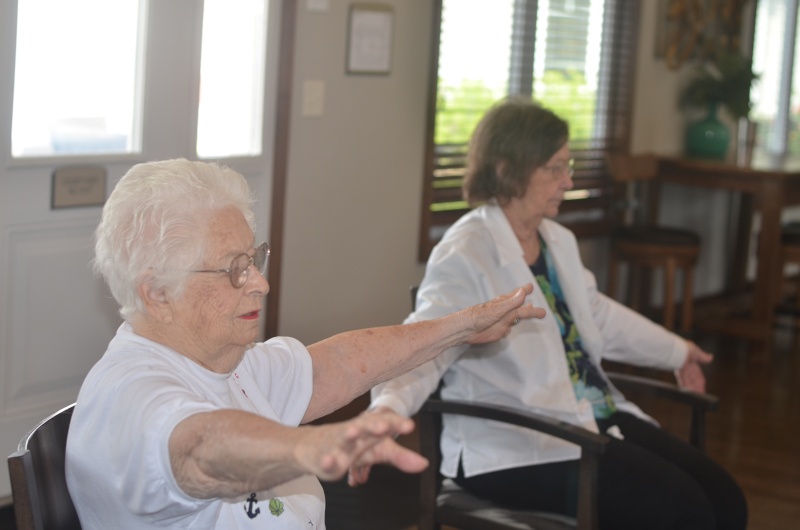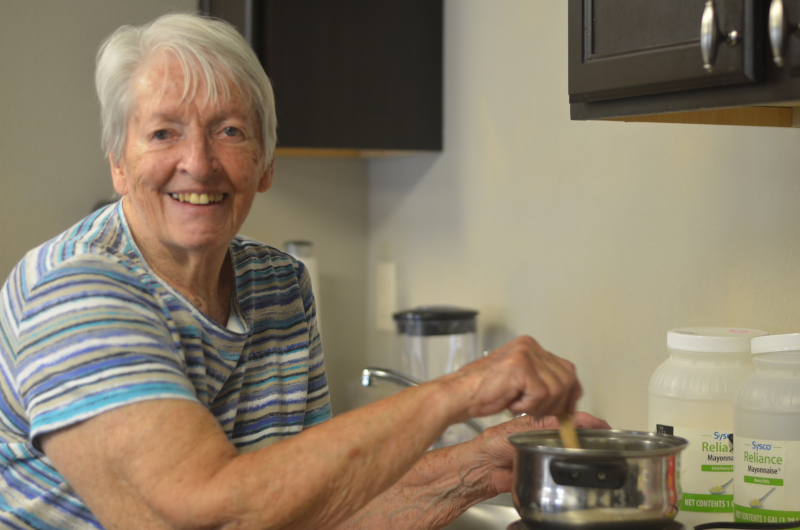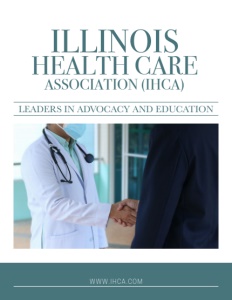Illinois Health Care Association (IHCA)
Leaders in advocacy and education
Business View Magazine interviews Matt Hartman, Executive Director of the Illinois Health Care Association, for our focus on the Long-Term Care Sector
Founded in 1950 and led by a 13-member board of directors, the Illinois Health Care Association (IHCA) is a non-profit organization comprised of more than 500 licensed and certified long-term care facilities and homes/programs for the developmentally disabled throughout the state. IHCA’s mission is to lead in advocacy and education for its members – something the Association team does with determination, diligence, and a great deal of passion.
Business View had an enlightening conversation with Matt Hartman, Executive Director of IHCA, where he described the Association’s value to members, current projects and programs, and what they would like to achieve going forward. His insights shine a critical light on the issues for long-term health care facilities in the State of Illinois and beyond.
BVM: Can you share an overview of IHCA and your current mandate?
Hartman, “IHCA is an affiliate of the American Health Care Association, which has only been around about a year longer than us. We are the oldest and largest association representing our sector and profession in the State of Illinois. We’ve been headquartered in Springfield since we were established in 1950, so we have a long and storied presence in the state. The Association itself has been in the same office space for about 30 years and has a staff of 11, including myself.
“Currently, we represent just over 500 long-term care providers across the state – a mix of for-profits, not-for-profits, and care providers. We represent the entirety of the long-term care sector, which includes skilled nursing facilities, assisted living, and developmental disability facilities. That 500 number counts only our facility-based members. They range from mom-and-pop single owner/operator shops to larger nationwide chains and everything in between.
“In addition to our facilities membership, we also have individual memberships (professionals such as doctors, consultants, etc.) and over 200 associate business members – folks who do ancillary services for our members, such as attorneys, accountants, laundry services.”
BVM: What services do you provide your members?
Hartman: “Our member services are across the board with a couple of main buckets. Advocacy in the state house and with the administration and its regulatory agencies is one of the key pieces that we do. We look to the federal government through our national affiliate for funding for regulatory solutions on a wide array of issues.
“In other avenues, many of our members require continuing certified education credits to maintain their professional licenses, so we do educational work for them throughout the year, including at our annual convention, which alternates between Springfield and Peoria. In addition to that, we train them how to utilize the media, and we serve as an intermediary for the sector with the media.
“We also do hands-on operational work with our members. This has been an especially important piece during the pandemic. As rules and requirements change, operationalizing those things is hard. You have the task every day of working with residents, ensuring they are safe and well cared for. Ensuring staff is there on the ground. So staying on top of those regulations and walking members through the issues is a big part of what we do.
“Similarly, we help them walk through those issues with payors. Illinois has become a 100 percent managed care state, meaning our public assistance dollars now flow through managed care organizations. So we help intercede on behalf of members when there are payment or financial issues with those groups. In addition, we do a lot of communications work, sharing with members detailed analyses of current issues. We have a pretty full scope.”

BVM: Is IHCA involved with solutions to ease the shortage of skilled workers?
Hartman: “Yes, that’s near and dear to my heart. One of my first big projects at IHCA was in regard to workforce development in our sector. We have always struggled with bringing skilled people in the doors. Our whole mission is resident-driven quality care – that’s what our members strive to achieve every day. And every study out there shows that appropriate high levels of staffing is how you achieve the best resident outcome.
“Because so much of what our members do is publicly funded through Medicaid or Medicare dollars, a lot of our work goes through the policy world – through what we do at the General Assembly at the legislature. We try to find staffing solutions there in a lot of ways and are fairly successful. During the pandemic, for instance, we were able to create, in conjunction with the Department of Public Health, the Temporary Nursing Assistant (TNA) program. A few dozen other states have made this permanent, unfortunately, our governor saw fit to do this as an Executive Order during the pandemic. And even though we’re still operating with pandemic rules in place, he stopped the program – mainly due to a lot of pressure from the unions, which are very strong in Illinois. But it was a great program. When Illinois was at the height of its highest unemployment rate in decades, we created 1700 new jobs in the state out of thin air with that program. That was a success story for us.
“We also work constantly to create career ladder opportunities for CMAs (certified medical assistants) and for nursing. A few years ago, we did a pilot program to put medication technicians into long-term care. That program allows a CMA to become certified after appropriate training to do the time-consuming job of med passes under the direction of a nurse. The upshot is they make more money, they have a new skill set, and the RN’s time is freed up to do other direct care work. It’s a wonderful ‘trickle up’ effect. It has a proven track record of working well in other states, so we are now fighting to make that pilot program permanent.
“Another initiative that we run and maintain is a scholarship program – the Maitland Warner Scholarship Fund – where we award more than 20 scholarships a year to help individuals who are interested in pursuing long-term care nursing as a career. And we’re in the process of developing some other standing nursing programs, so we can identify, cultivate, and train our own nursing workforce going forward.”

BVM: Your thoughts on the impact of COVID in the Illinois health care community?
Hartman: COVID was entirely unprecedented for the sector. We’ve never experienced anything like this and the toll was devastating in terms of human life, but in other ways, as well. Our residents were cut off, isolated from loved ones. There were 10,000 deaths in Illinois in long-term care facilities, which is horrendous. In spite of it all, I think facilities did their level best. It was hard to pinpoint when, where, how it would come into your building – it wasn’t a question of whether it would, but how you managed it when it got there.
“People have learned some good lessons from COVID. The value of staff became even more entrenched. I think the idea of how infection control should be thought of as an active and ongoing piece of how you provide care has gained a stronger place. It was tough but, thankfully, in December, vaccines rolled out and the numbers have changed drastically for our buildings. Proving the incredible effectiveness of residents taking the vaccine.”
BVM: In summation, what would you like to share about the value of IHCA?
Hartman: “Deep in the heart of the pandemic, a board member told me that if someone doesn’t recognize the value of an association like this right now, they never will. And it goes back to what I said earlier that these folks were fighting for the lives of everyone in their buildings. Staff and residents alike. They were trying to provide care, which is a 24/7 business in the best of times, but also manage the infection control protocols, manage staff not wanting to come in because they’re terrified of this disease, managing family members who are pounding on the doors demanding to see their resident.
“In the face of all that, there were new regulations sometimes on a daily basis – new reporting requirements, new staffing protocols – so we were the ones that digested that for them. And then gave the information back to them in virtual presentations, or over the phone, in a manner they could understand. We advocated for funding, for programs. That showcases a lot of value from IHCA for our members in the health care sector. They’ve told us, “We needed you to do that” and that’s what makes it all worthwhile.”
AT A GLANCE
Illinois Health Care Association (IHCA)
What: A non-profit organization representing the long-term care sector
Where: Based in Springfield, Illinois
Website: www.ihca.com



